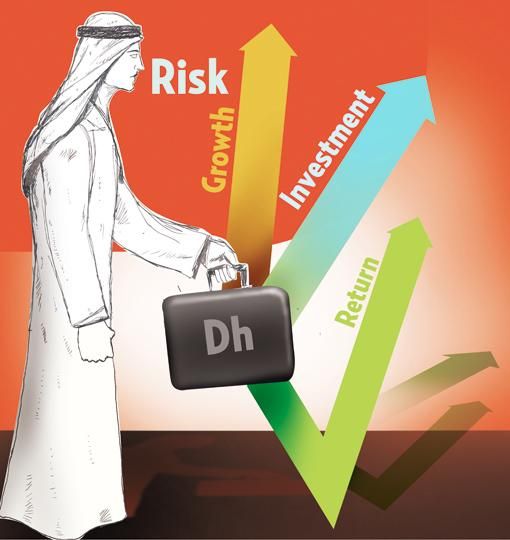There is much discussion and debate both inside and outside the walls of government offices about what Dubai should do next. Very few people expect real estate to ever return as a key driver of foreign investment and ultimately growth. Various alternatives have been discussed and debated, namely tourism, culture and - to a certain extent - niche industries.
Before contributing to the debate on Dubai's way forward, one of its most crucial and exciting phases yet, one must put this next period in the context of what the city has always aimed to be - a true metropolis serving as an important economic, political and cultural axis for the region, as well as a central hub for regional and international connections and communications.
The prominent idea so far is that with solid tourism-oriented infrastructure (hotels, malls and theme parks), together with vibrant cultural attractions (festivals and fairs as well as a nascent creative community), an economic shift could realistically occur whereby the focus switches to adding value and the 'tulip mania' mindset is dropped.
Service providers would have to compete globally for business, which would in turn increase both creativity and competitiveness. The conference business and medical tourism are other obvious complementary sub-industries. While these feed off the same basic infrastructure, with additional incentives and rebate systems, they could become significant contributors to the economy.
Yet there seems to be a missing ingredient, something as basic as what salt contributes to a complicated signature dish. I believe our missing 'salt' is entrepreneurship. Dubai's economy is controlled by the government and a small number of old, established family businesses - talk about Russian and Iranian investors controlling the market is incredibly exaggerated. It is conceded today by many that working for the government is preferable to setting up a business.
I have been able to spend time with friends this Ramadan who are young Emirati entrepreneurs who have struck out on their own in the hope of establishing themselves and becoming independent both financially and creatively. Two run a magazine, another sells water and espresso machines and another provides fire safety equipment and consultancy.
I asked them how their businesses were going. While some detailed how business had slowed since the economic crisis, they all cited challenges that predated it. When I asked what those challenges were, they said they were all related to the government in one way or another:
The government set up an incubator some years back that initially had a large budget for supporting young Emirati entrepreneurs. Eventually it became clear that funding was not easy to obtain and although many start-ups became members of the organisation, very few actually received funding.
The same entity offered to waive incorporation fees for businesses that were approved members. In the view of many businesses, this was more attractive than funding because it gave start-ups breathing space. Sadly, this has been done away with due to the economic crisis.
It is inconceivable for entrepreneurs to emerge when the government virtually aims to vertically integrate all sectors and become the most competitive supplier of goods and services.
Government employees are paid high salaries. This has made them too comfortable, risk-averse and lacking in entrepreneurial ambition.
In summary, a serious change in the government's mindset towards entrepreneurship is required. In many instances, the government is increasingly finding itself in a position where it is competing directly with the private sector.
The combination of this and the high fees which serve as a pseudo taxation regime will make it very difficult for anyone to contemplate setting up a business. No one is asking for their hands to be held, but some form of incubation is required.
A case in point: a business park set up to incubate businesses was leased at market prices! It would make more sense to encourage the founders of companies when they are just getting started rather than to woo established giants like Microsoft. That's what Silicon Valley did, and just look at what's come out of that.
If this persists, the challenge that Dubai faces is not one of booms and busts but rather one of long-term regional competitiveness. To continue to be complacent about supporting entrepreneurship would eventually stifle the UAE as a competitive nation. Good businesses need to be run by young, hungry men and women, not well-compensated government executives with comfortable mortgages.
To put matters in context, the costs of running a city like Dubai will continue to increase and if entrepreneurs do not emerge, then any form of taxation will become virtually inconceivable because most people will probably be working for the government.
Ultimately, if the city continues to embrace big government and the majority of the population works directly or indirectly for it, then we will potentially be walking the dark path of socialism without even knowing it until it is too late.
Like all things facing Dubai today, this is a question of investing in a long term-strategy that will create a mature and sustainable economy, as opposed to setting short-term goals here and there - something that I increasingly hear these days being referred to as quick wins. No, thank you - I want a few slow wins rather than many transient, quick ones.
- Mishaal Al Gergawi is an Emirati commentator on socio-economic and cultural affairs in the UAE.











